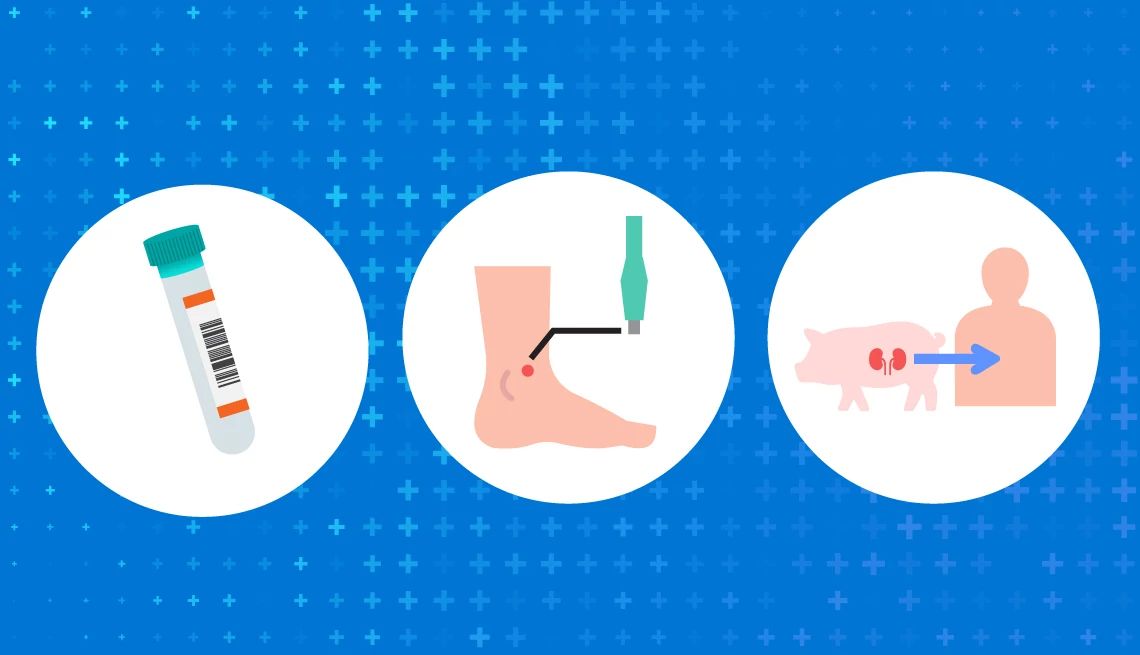Staying Fit


Richard “Rick” Slayman made history on March 16 by becoming the first living person to receive a genetically modified kidney — from a pig.
The 62-year-old Weymouth, Massachusetts, resident had end-stage kidney disease and was running out of options. In 2023, the kidney he received about five years before from a human donor started to fail; he was placed on dialysis but experienced complications that required frequent hospitalization.


AARP Membership— $12 for your first year when you sign up for Automatic Renewal
Get instant access to members-only products and hundreds of discounts, a free second membership, and a subscription to AARP the Magazine.
That’s when his doctors at Massachusetts General Hospital in Boston suggested an experimental pig kidney transplant. “I saw it not only as a way to help me, but a way to provide hope for the thousands of people who need a transplant to survive,” Slayman said in a statement released by Massachusetts General, where the transplant was performed.
This is just one example of a groundbreaking medical advance that could one day help countless older adults. Here’s a closer look at it, plus two other recent breakthroughs announced in early 2024.
1. Transplanting a kidney from pig to patient
Taking an organ from one species and transplanting it in another — called xenotransplantation — is what Steven Potter, M.D., describes as “one of the holy grails in transplantation” science. A big reason: There is not enough supply from human organ donors to meet demand. About 17 people die each day waiting for an organ transplant, according to the Health Resources & Services Administration.
A kidney is the most common organ needed for transplant, and demand is only expected to increase alongside accelerating rates of end-stage kidney disease in the U.S. Currently, nearly 808,000 people in the U.S. are living with end-stage kidney disease. Most kidney transplant recipients are between the ages of 45 and 65, according to Cleveland Clinic. For these people, a transplant is the ideal treatment, as it can drastically improve an individual’s quality of life, says Potter, director of pancreas transplantation at Medstar Georgetown Transplant Institute. Dialysis — an expensive therapy where a machine takes on the work for the kidneys — is the other option.
The pig kidney that Slayman received was genetically edited “to remove harmful pig genes and add certain human genes to improve its compatibility with humans,” Massachusetts General said in a news release. And a new class of immunosuppressant medications that help prevent organ rejection was used for the pioneering procedure, so it was “advancing on multiple fronts,” Potter says.
Even though it may be a while before xenotransplantation becomes more common in operating rooms around the country (doctors have also transplanted a pig heart into living humans), Potter says Slayman’s March 16 surgery is “a big step forward.”




































































More on Health
A Blood Test for Alzheimer’s Disease?
Dementia experts say we’re getting closer
A Pill to Slow Aging?
Scientists are seeking ways to help people stay healthier, longer
Warning Signs of Pancreatic Cancer
Plus, advances in treating and catching it early
Recommended for You